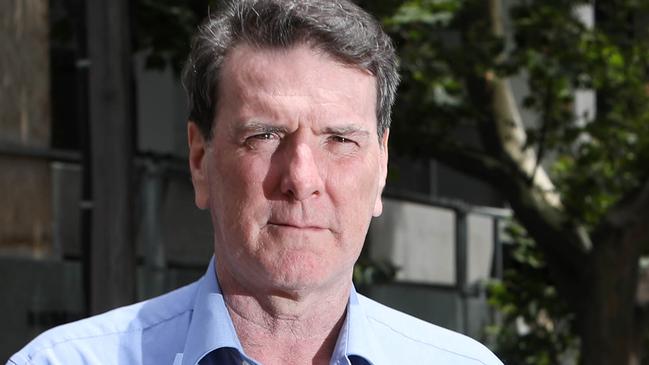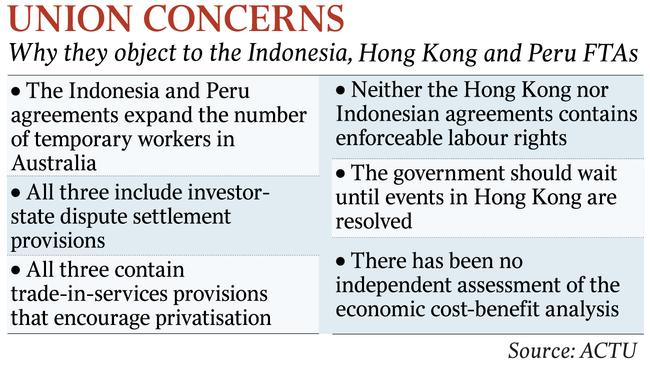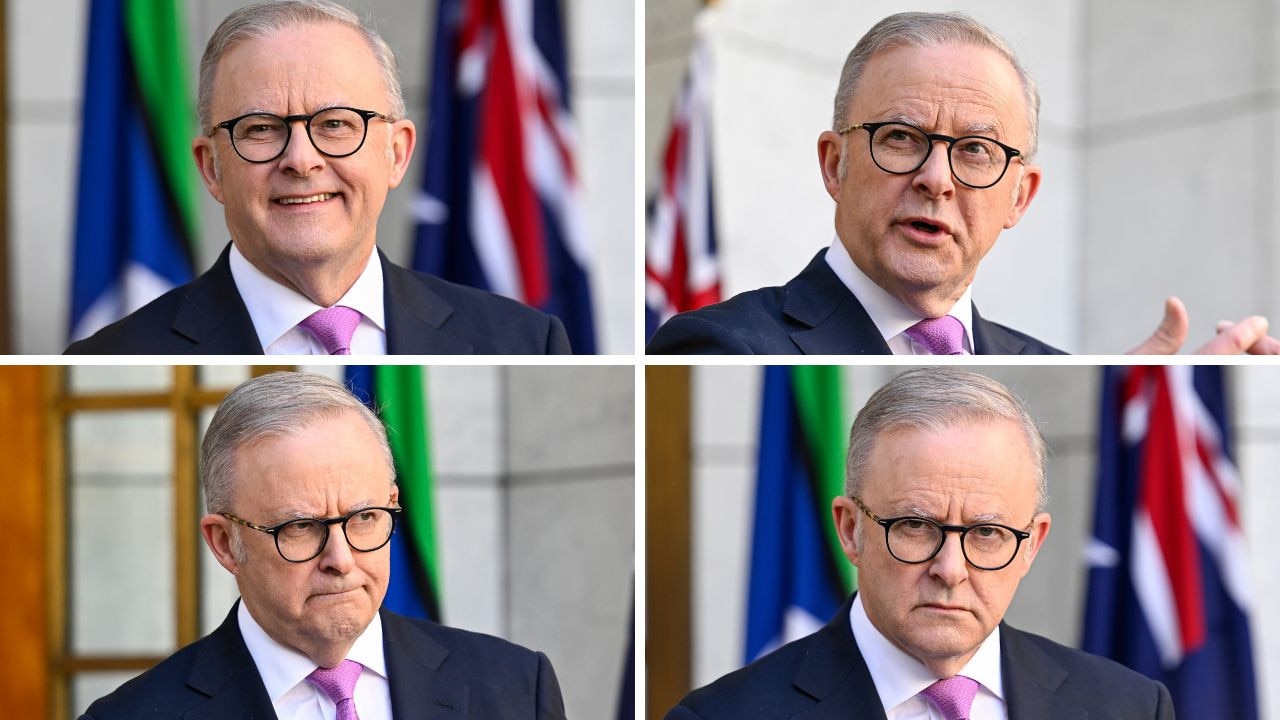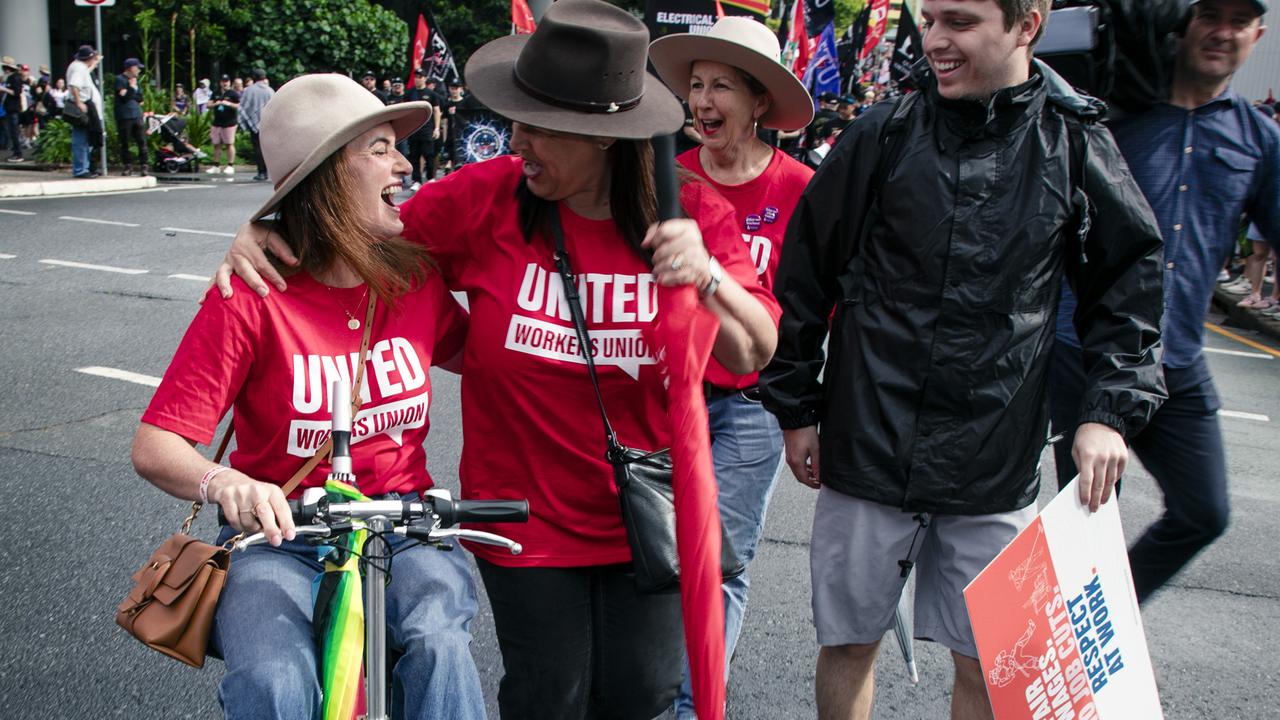‘You will pay’: unions threaten Labor over free trade agreements
CFMEU leader Michael O’Connor has lashed out at Labor for backing three free-trade deals.

CFMEU leader Michael O’Connor has lashed out at Labor for backing three free-trade deals, warning that it will cause ongoing “conflict” between the ALP and the union movement, and the “parliamentary party will have to wear the fallout”.
Mr O’Connor is the second leading union figure to criticise Labor after ACTU president Michele O’Neil accused the party of abandoning its platform by siding with the government on the Indonesian, Hong Kong and Peru agreements.
Mr O’Connor said the caucus decision sent a “very bad signal” to unions and workers, and guaranteed there would be rank-and-file opposition at upcoming ALP state conferences and the next national conference.
“This argument is not over by the decision,’’ Mr O’Connor told The Australian. “This is going to be an ongoing issue of conflict between sections of the trade union movement and the parliamentary party going forward.
“This issue is an iconic issue for many unions, and I think it’s going to be a very problematic relationship going forward as a consequence of this. How that manifests itself I am not too sure but certainly this is not a good start to this political cycle by them making this decision. The parliamentary party will have to wear the fallout.”

A special meeting of the Labor caucus signed off on the free-trade deals on Thursday.
The Australian understands two Labor MPs voted against the deals and 25 supported them at a meeting of the caucus international and legal affairs committee on Wednesday, amid concerns over exploitation in the temporary skilled migration system.
There are 1000 Indonesians in Australia on working holiday visas but under the FTA that number is expected to increase to about 4000 workers in the first year and 5000 after the sixth year.
There were also concerns about the investor-state dispute settlement provisions that allow foreign investors in some circumstances to sue the federal government in international tribunals if they consider new Australian laws harm their interests.
Senior Labor sources said if the party voted against the deals, the ISDS provisions would be much worse under the existing bilateral investment treaty between Australia and Indonesia that was signed in 1992.
Mr O’Connor accused the ALP of being afraid of adverse media coverage and said the opposition should have worked with senators to pursue changes to the agreements that would address concerns about job security.
“There was probably a natural majority of people in the Senate who had concerns about free trade,” he said. “They should have been able to build a coalition among the senators to ensure there were concessions to improve the job security of Australian workers. The fact they didn’t have a crack at it is pretty disappointing.
“ I think they are scared of your newspaper. They are afraid of getting towelled up by The Australian and Fin Review as anti-trade.
“Everybody in the trade union movement supports trade. We just want to make sure that if there are to be trade agreements, that they are robust, fair and don’t diminish the job opportunities of Australians. It’s not much to ask from a party that claims to represent workers. You would have thought it would be a natural position for them to adopt.”
Ms O’Neil said the ALP had “made a mistake that will not be forgotten by Australian workers”.
“The decision by the ALP to side with the government is an abandonment both of their own platform and of their responsibility to stand up for fair trade deals which deliver jobs for local workers, that protect Australia’s public services, sovereignty and visa workers from exploitation and that ensure international labour standards in the countries we trade with,” Ms O’Neil said.
Mr O’Connor — the national secretary of the Construction Forestry Maritime Mining and Energy Union and brother of ALP frontbencher Brendan O’Connor — said the caucus decision appeared to be in breach of the party platform and was “certainly a breach of the clear understanding that our union and other unions thought they had with the parliamentary party”.
“I think the position the party is taking on free trade is sending a very bad signal to Australian workers about where it stands on issues like job security,’’ he said.
“It also sends a very bad signal to the trade union movement about trying to work together to have common positions that are about job security for people.”
Asked whether he supported Anthony Albanese’s leadership, Michael O’Connor said: “I am not talking about Anthony Albanese’s leadership, I am talking about free-trade agreements. The party leadership has nothing to do with me. I don’t elect people to leadership positions, other people do. But I support, and will always support, good public policy that advances the interests of our members and working people generally.”
He said he expected there would be opposition to the decision by unions and rank-and-file ALP members at party conferences.
Electrical Trades Union Victoria secretary Troy Gray, a close ally of CFMEU Victorian leader John Setka, who is fighting moves by Mr Albanese to expel him from the ALP, said millions of workers were “screaming out for politicians to stand up for them and their families”.
“This is a moment where the Australian Labor Party needs competent, strong leadership,” Mr Gray said. “Sadly, however, Albo has shown it’s just too hard for him.
“This blatant disregard for the party’s rules, democratic structures and platform is deeply insulting to the party’s members, affiliated unions and supporters.”
Opposition trade spokeswoman Madeleine King said Labor would back the FTAs but was concerned how the government would implement them, revealing a list of “firm commitments” to ensure Australian jobs were protected and market access for local businesses was maximised.
Labor has sought a guarantee that the FTAs protect Australian jobs; that holidaymakers are not exploited and are appropriately qualified for the work; and that the existing bilateral investment treaty with Indonesia is terminated.



To join the conversation, please log in. Don't have an account? Register
Join the conversation, you are commenting as Logout